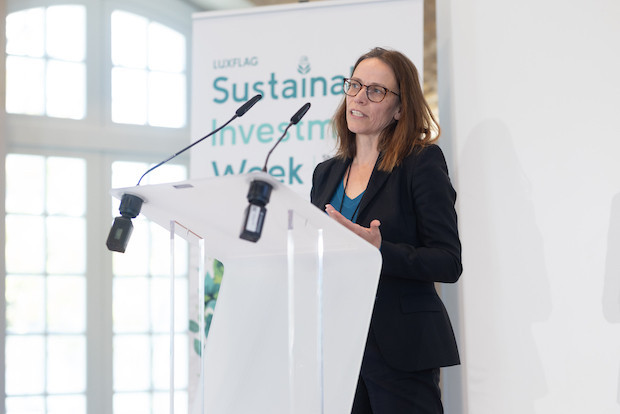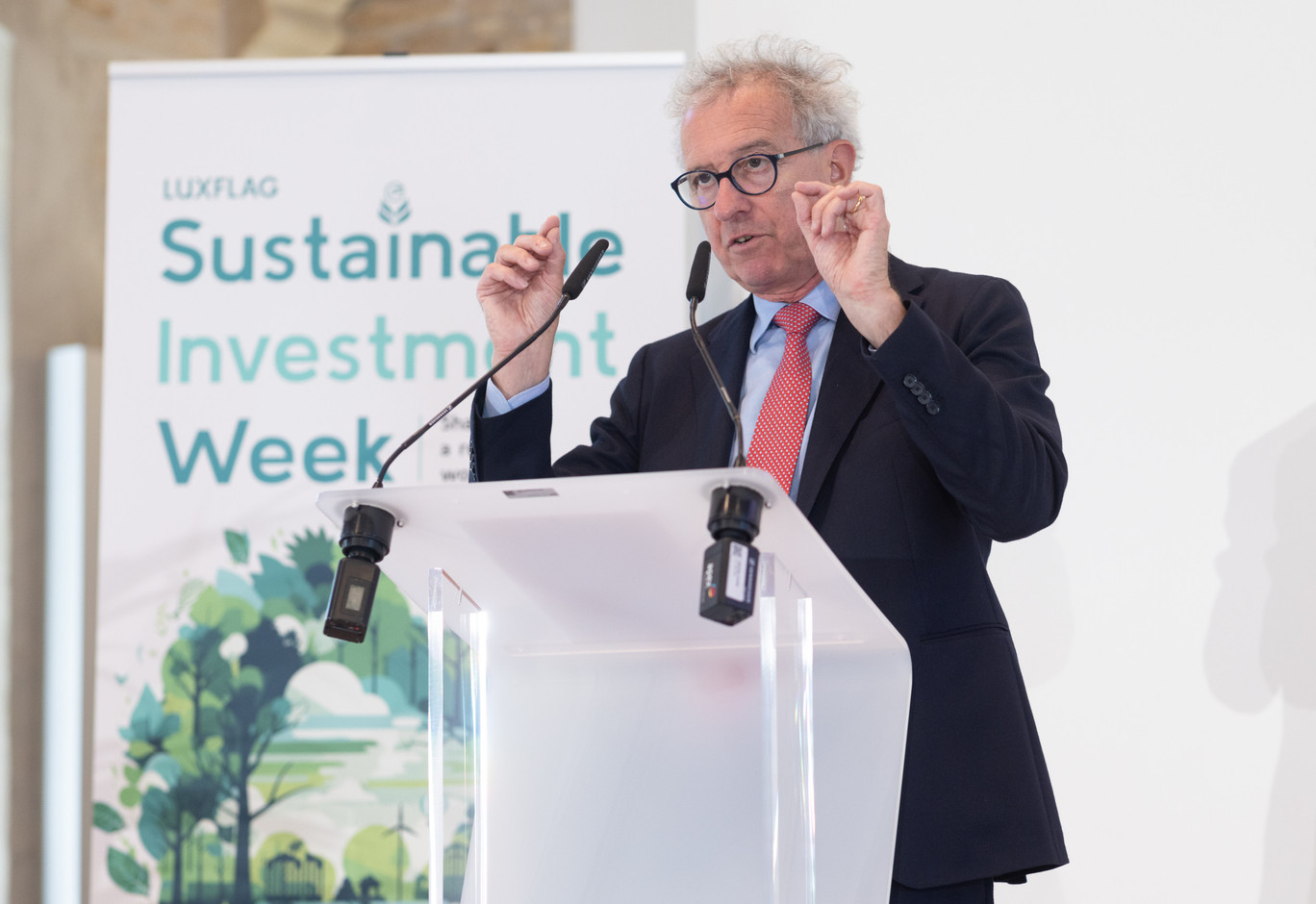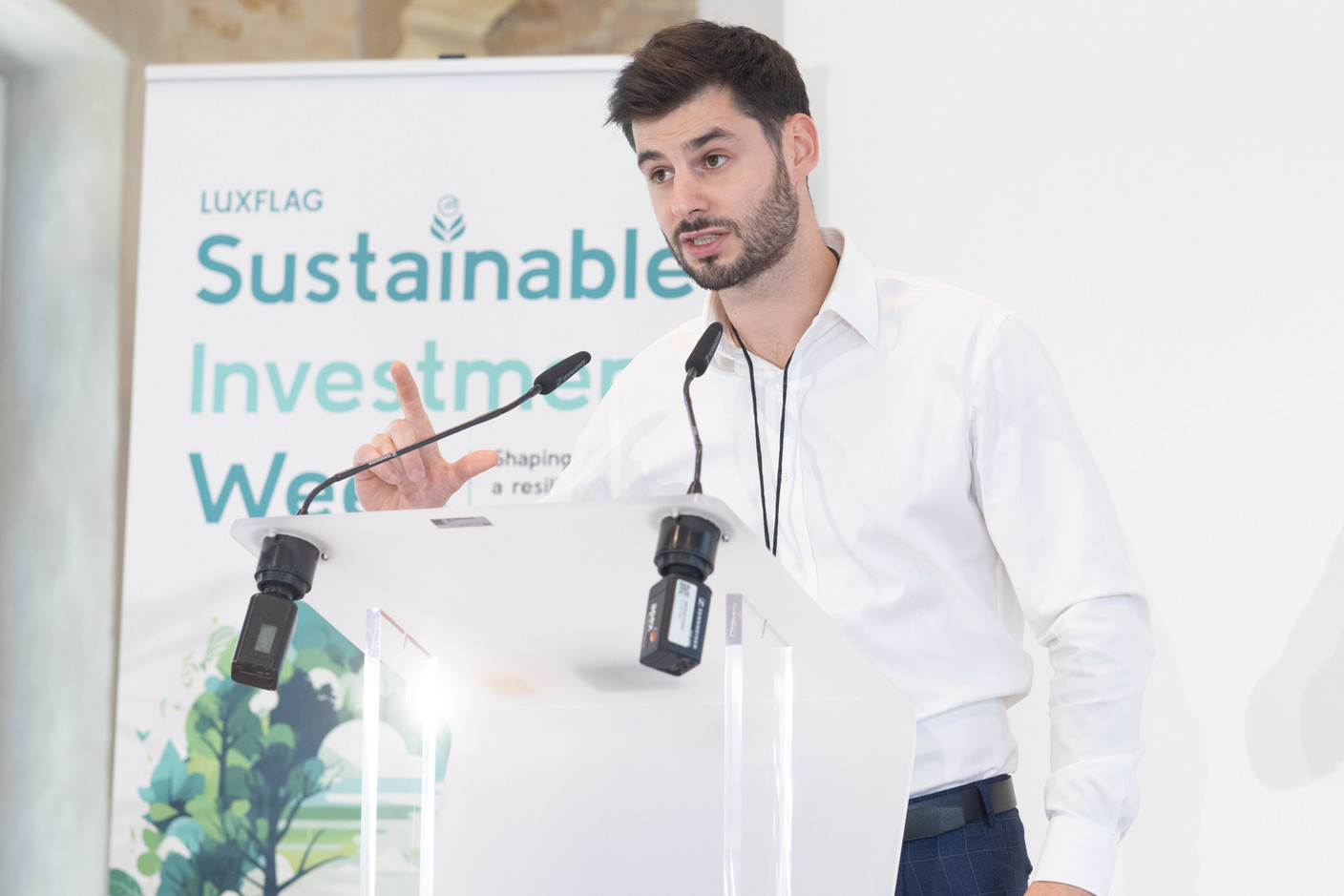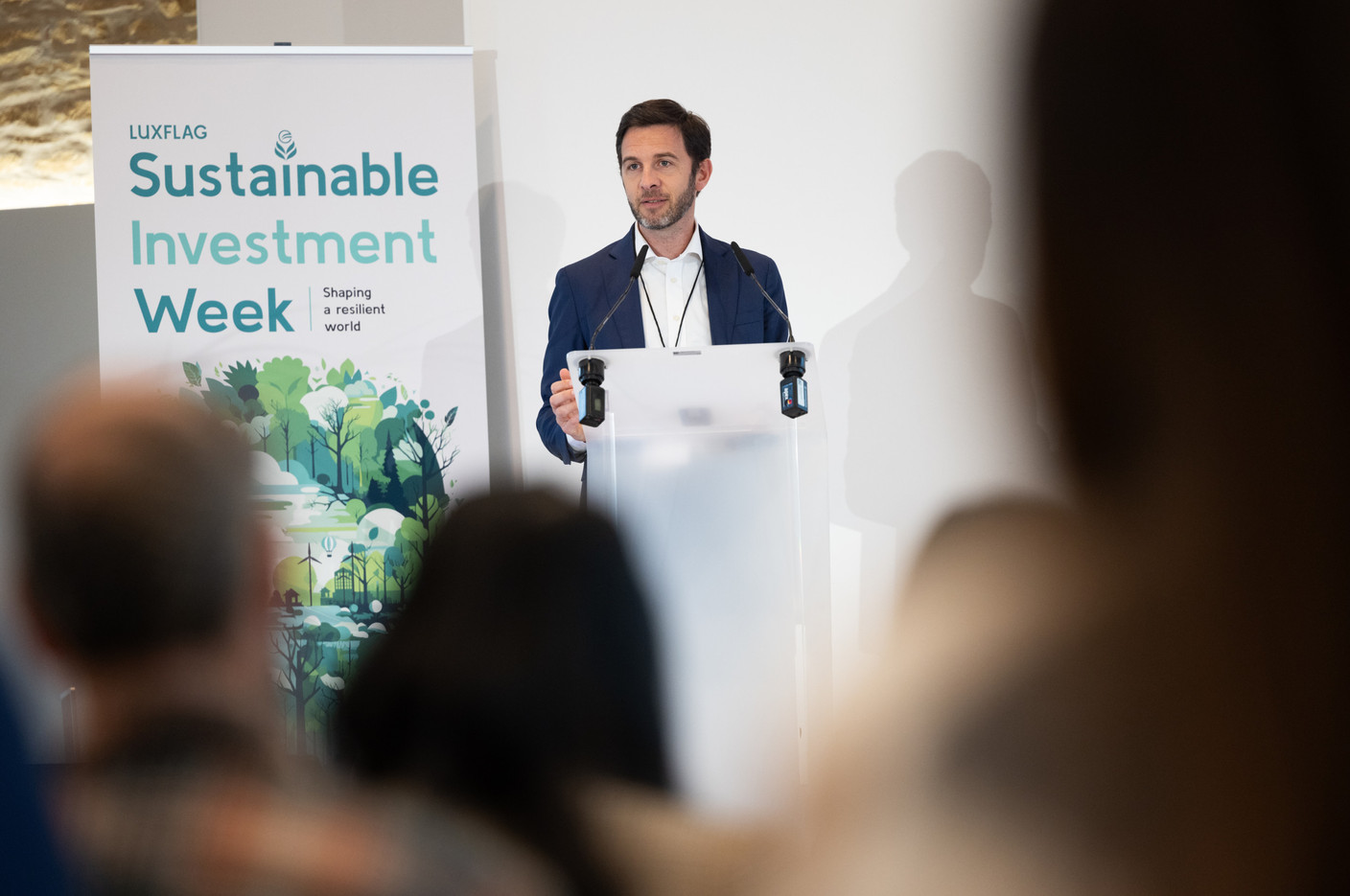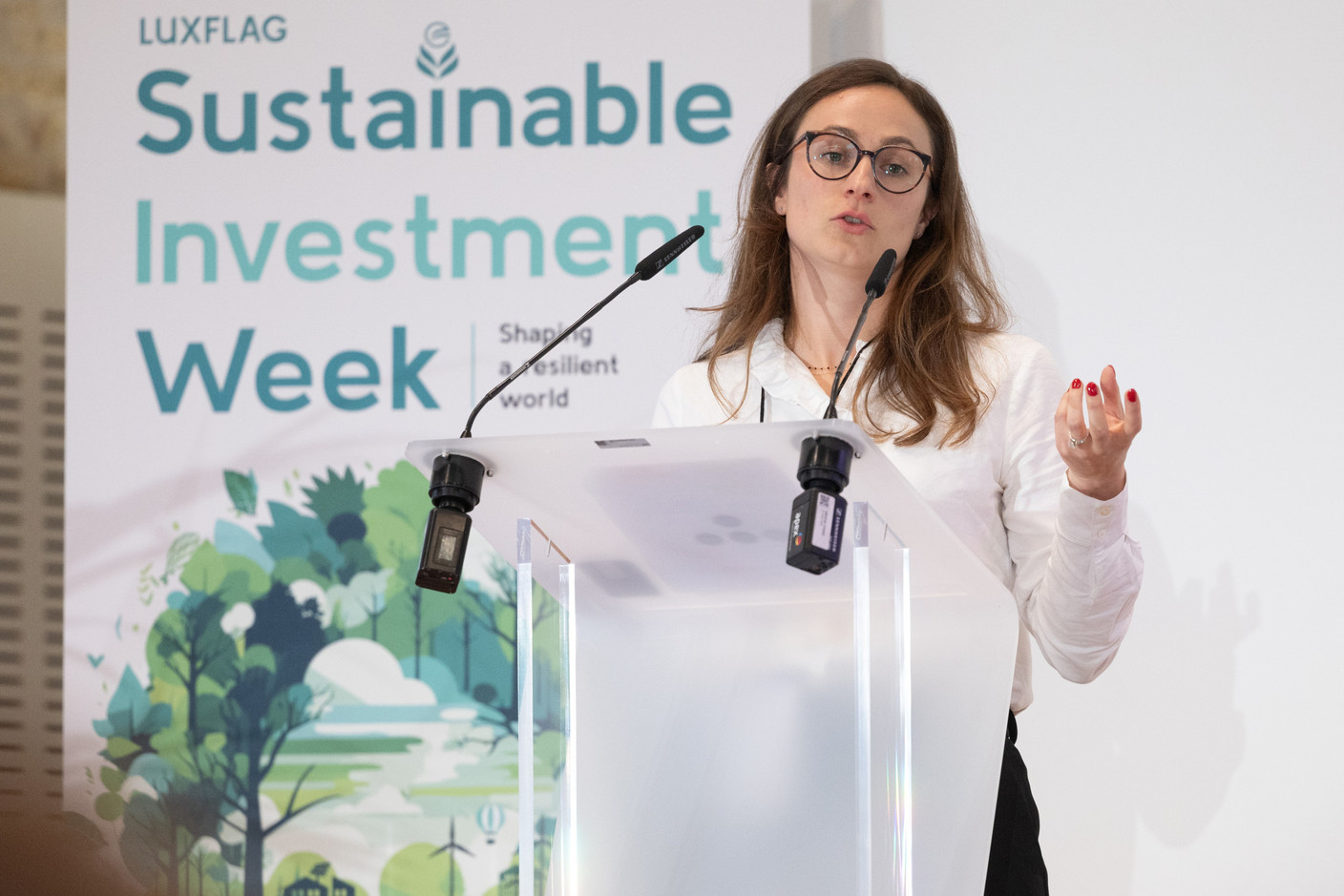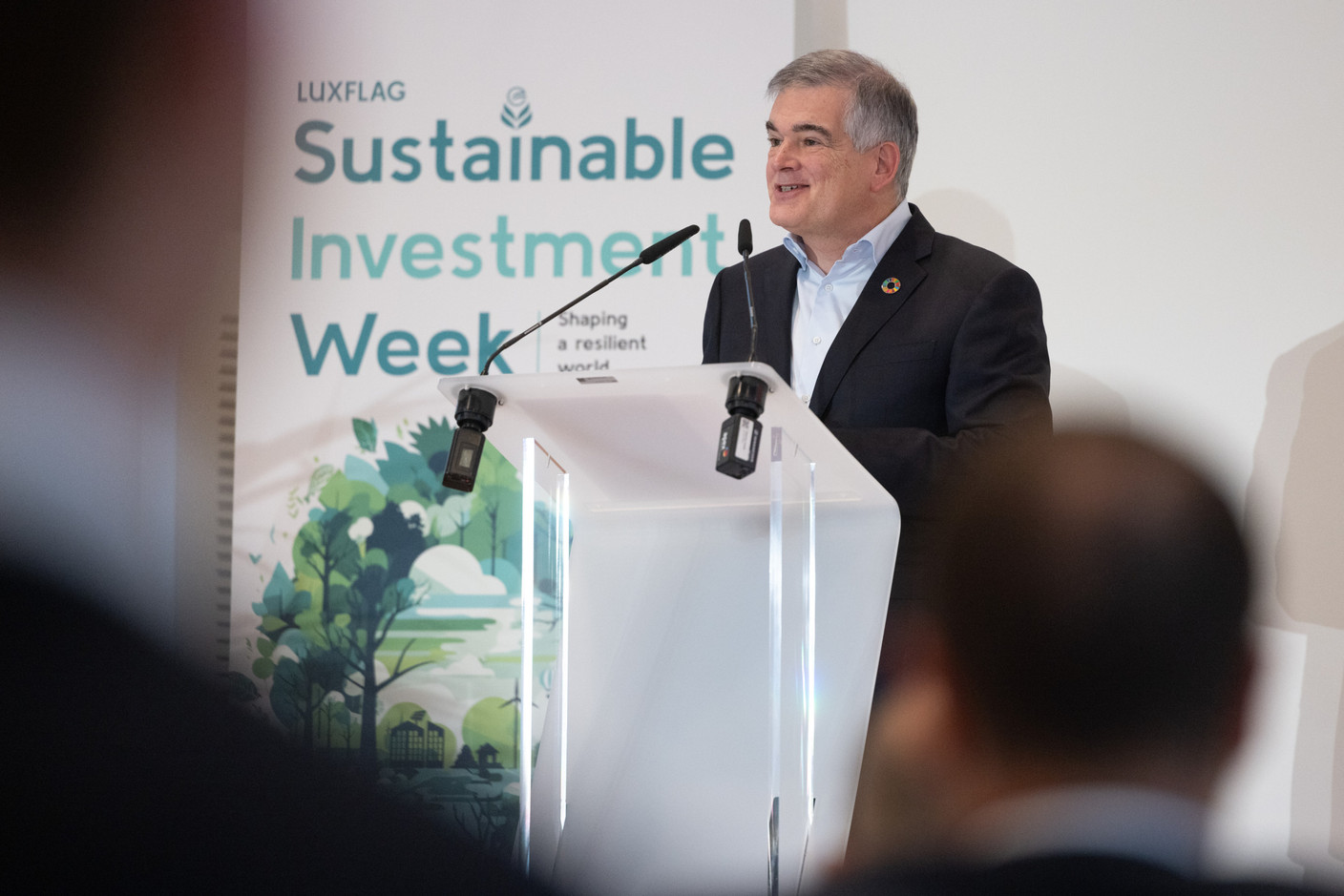“We cannot only work with companies [which] are, by the regulatory definition, green,” said Katja Filzek, senior ESG strategist at Union Investment during a conference organised by Luxflag on 17 October. She thinks that it is “very important” to finance the green transition.
EU taxonomy: “pretty much unusable”
“The EU taxonomy was meant to be a guiding path and a way of giving us thresholds and elements of how we should define a sustainable company,” stated Filzek. When applying the conservative approach that includes the concept of “do no significant harm,” she explained that only 3% of all companies in the MSCI ACWI, a global equity index, are aligned with the EU taxonomy.
Filzek illustrated the concerns expressed by asset managers with an example from the automotive industry where electric cars are defined as 100% green only if their tyres are also green, according to the taxonomy. Should they “do significant harm” because they come from, “let’s say, compromised areas in Indonesia” or “do not fulfil some human rights policies, then your 100% [score] as an electric carmaker will [go] to zero.”
Adopting a very conservative approach is therefore seen as very challenging for fund managers and asset allocators given the very restrictive universe. Moreover, Filzek explained that enlarging the investment universe for your “very defined green products” is a sensitive issue “without getting into the way of greenwashing.”
MSCI ESG ratings: risks of using third party data providers
Filzek complained in cryptic fashion about the ratings of MSCI, as the company is seen as overweighting legacy controversies in their ratings. “These might not be, let’s put it this way, right, or maybe completely not useful for looking into the future, because it’s mirroring developments from the past.”
Filzek explained that MSCI ratings “usually tend to come from a controversy standpoint” meaning that they embedded the eventual scandal risk into the financial risk hitting negatively the “ESG and impact scores.”
Filzek presented a world heatmap based of the MSCI automotive ratings at the conference. It displayed unfavourably (red and yellow) automotive companies in the western world (US, Canada, Mexico, UK, France and Germany).
India, China, South Africa and Brazil were painted in green on the heatmap, suggesting that their automotive industries have rather positive sustainable characteristics. “I’m not sure [whether this] is intuitive, I think maybe not,” said Filzek visibly annoyed.
Union’s transformation ratings
“We need to have a more comprehensive approach and this is called: investing 2.0,” stated Filzek. She commented that their rating process aims at identifying transforming or transitioning companies.
The focus is rather on: “how good are their strategies? How good are companies positioned to avoid stranded assets and to deliver on promises like transition or net zero pledges.”
Applying Union’s transformation rating approach to the automotive industry
Filzek noted that the current EU regulation is only looking at tailpipe emissions. This is “a short-sighted view” as there are “more important things such as assessing the life cycle of [car components].” Indeed, she added that it does not help much if “nothing is coming out of the tailpipe” in Luxembourg while Chinese and Koreans build new coal facilities to power their automotive industries.
Most important KPIs to assess the electric car industry
As about 40% of the cost of an electric car comes from the battery, Filzek thinks that the primary task should be to assess and ask companies about their CO2 footprint as “more or less all [batteries] are coming from China,” where coal is largely used to produce electricity.
Filzek is pleased about the EU initiative entitled “,” which may help EU countries to identify the cars to subsidise as per their carbon footprint. The next step for car manufacturers is to articulate their strategy to bring CO2 emissions down.
The second KPI is about circularity. Filzek wants to know where the lithium and nickel comes from. What are the plans for the reuse of these raw materials at the end of the battery’s life? She also noted the adoption in July 2023 of the , which will “regulate the entire life cycle of batteries--from production to reuse and recycling--and ensure that they are safe, sustainable and competitive.”
[ When it comes to employee rights], I mean, it’s all over the press, one [VW] is heavily unionised the other (Tesla) is not […] that plays in favour of VW.”
As for the third KPI, Union pledged to comply with the to ensure that human rights are accounted for in their investment process.
Best transformation rating: Tesla or VW?
Supported with some examples, Filzek tried to demystify whether the green hype around Tesla is well deserved. She started by exploring their respective strategies for recycling raw materials.
“You want from them that they guarantee to you that they recycle materials,” said Filzek. She noted that VW uses blockchain technology to follow the multiple sourcing of raw materials to the battery manufacturing in China down to the car production site in Europe. “Tesla has the blockchain but they [haven’t] used it yet.”
On human rights and the treatment of employees, Filzek explained that VW does not source some raw materials, such as cobalt, from Congo and it has tried to reduce the imports of nickel from Russia. When it comes to employee rights, “I mean, it’s all over the press, one [VW] is heavily unionised the other is not […] that plays in favour of VW.”
Despite VW’s legacy controversies, thedieselgate scandal, Filzek thinks that VW should “have a chance […] but only as a transition candidate.” More generally, she explained that companies must deliver on certain KPIs. “If they don’t for another year they get out of the pack.”
Sadly, Union’s transformation ratings for both companies were not communicated at the conference.
This article was published for the Delano Finance newsletter, the weekly source for financial news in Luxembourg. .
